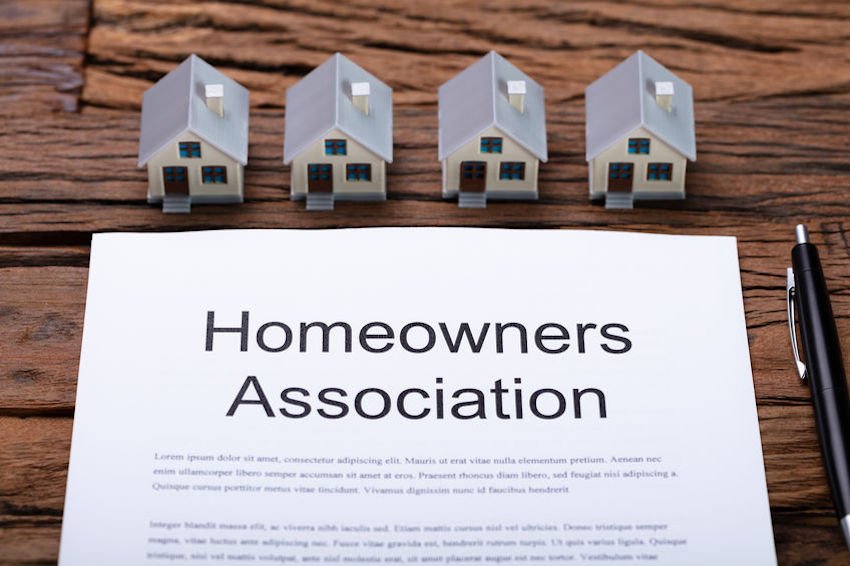The Ultimate Contrast: HOA Condo vs. Standard Home
The Ultimate Contrast: HOA Condo vs. Standard Home
Blog Article
The Function of an HOA in Establishing and Enforcing Area Guidelines for Homeowners
The duty of a Homeowners Association (HOA) in imposing and establishing community guidelines is fundamental to maintaining a cohesive and organized domestic atmosphere. By creating clear policies that regulate aspects such as home maintenance and area conduct, the HOA not just sets standards for homeowners however likewise fosters a feeling of belonging and accountability.
Recognizing Home Owners Associations
Homeowners associations (HOAs) act as governing bodies for property areas, playing an important function in maintaining residential or commercial property values and fostering a feeling of area. Commonly created by developers, HOAs are made up of home owners within a designated area that choose a board to look after the association's tasks. The main functions of an HOA consist of imposing neighborhood regulations, taking care of typical areas, and arranging area events.
HOAs run under a collection of controling records, including covenants, restrictions, and conditions (CC&R s), which outline the rights and obligations of house owners. These guidelines intend to make sure that residential properties are kept to a certain requirement, therefore safeguarding the aesthetic appeal and total worth of the neighborhood. Additionally, HOAs typically accumulate charges from house owners to money maintenance, landscape design, and various other social work.
The presence of an HOA can significantly influence the living experience within an area (hoa condo). While some homeowners appreciate the structured setting and amenities given, others may discover particular regulations limiting. Balancing the passions of all property owners is important for an HOA to work effectively, ensuring that it serves its intended objective of improving neighborhood living while appreciating individual property owner legal rights
Establishing Neighborhood Standards

To begin, an HOA ought to conduct studies or hold meetings that enable homeowners to voice their concerns and tips. This participatory procedure promotes a feeling of ownership and raises compliance. Next, the HOA board need to analyze the responses to determine usual themes and concerns that warrant formal addition in the standards.
It is also necessary to make certain that the standards are clear, concise, and quickly understood. Obscurities can bring about conflicts and misunderstandings, undermining the objective of the guidelines. In addition, the guidelines ought to be comprehensive, covering numerous aspects of neighborhood living, including building upkeep, noise degrees, and use common areas.
Enforcement of Guidelines
Effective enforcement of community regulations is crucial for keeping order and guaranteeing that all homeowners stick to the established guidelines. An HOA needs to carry out a structured method to enforce these laws, which typically entails a mix of surveillance, communication, and penalties for non-compliance.
First, routine assessments and neighborhood patrols can help recognize offenses, making certain that rules are continually applied throughout the neighborhood. This aggressive tracking allows the HOA to deal with problems before they rise, fostering a feeling of liability amongst homeowners.
Second, clear interaction is vital. Residents should be informed of the regulations and the treatments for reporting violations. An open line of interaction urges residents to voice issues and look for clarification on standards, which can boost compliance.
Lastly, when infractions happen, the HOA must implement repercussions as detailed in the regulating papers. By efficiently imposing guidelines, an HOA can grow a harmonious living atmosphere that mirrors the collective values of its citizens.
Advantages of HOA Regulations
Countless benefits arise from the execution of HOA policies, which offer to enhance the quality of life within an area. One key benefit is the maintenance of building values. By enforcing criteria for visual appeals and maintenance, HOAs guarantee that homes and typical locations continue to be eye-catching, cultivating a desirable living atmosphere that can bring about increased building worths in time.
Furthermore, HOA regulations promote consistency and uniformity within the community. This coherence in design and maintenance assists to develop a sense of belonging among locals, contributing to community satisfaction and a positive atmosphere. Developed guidelines assist in conflict resolution amongst neighbors by offering clear expectations and methods for habits, thus minimizing disagreements.
One more significant advantage is the arrangement of shared features and services. Lots of HOAs handle neighborhood facilities such as parks, swimming pools, and clubhouses, which enhance leisure possibilities for citizens. These amenities moved here not only boost you could try this out the lifestyle however likewise encourage social communication.
Eventually, the policies stated by an HOA grow an efficient, unified community, ensuring that locals delight in a high requirement of living while fostering a supportive setting for all house owners.
Usual Obstacles Faced by HOAs
Among the advantages that property owners organizations (HOAs) can give, they additionally encounter a variety of challenges that can impede their efficiency. Many property owners may not participate in conferences or neighborhood tasks, leading to a separate between the HOA board and residents.
An additional difficulty is the enforcement of regulations and laws. Conflicts can arise when homeowners feel that enforcement is inconsistent or biased, potentially causing disputes within the area. Additionally, HOAs commonly face financial restraints, which can restrict their capacity to maintain common areas or fund neighborhood projects. This can develop dissatisfaction amongst homeowners who expect high requirements of maintenance.
In addition, navigating legal intricacies can be daunting for HOAs. Advancing and altering demographics area needs need HOAs to adapt their standards, often meeting resistance from enduring citizens who are accustomed to typical standards.
Final Thought

By formulating clear regulations that regulate facets such as property maintenance and area conduct, the HOA not just establishes criteria for residents yet likewise fosters a feeling of Resources belonging and liability.Homeowners associations (HOAs) serve as controling bodies for residential communities, playing an essential duty in maintaining building values and promoting a sense of area. Numerous home owners may not get involved in conferences or neighborhood tasks, leading to a disconnect in between the HOA board and residents. Progressing and changing demographics neighborhood needs need HOAs to adjust their standards, typically fulfilling resistance from long-lasting residents who are accustomed to typical standards. With the development of clear policies and constant enforcement, HOAs promote residential or commercial property upkeep, neighborhood satisfaction, and depend on among homeowners.
Report this page